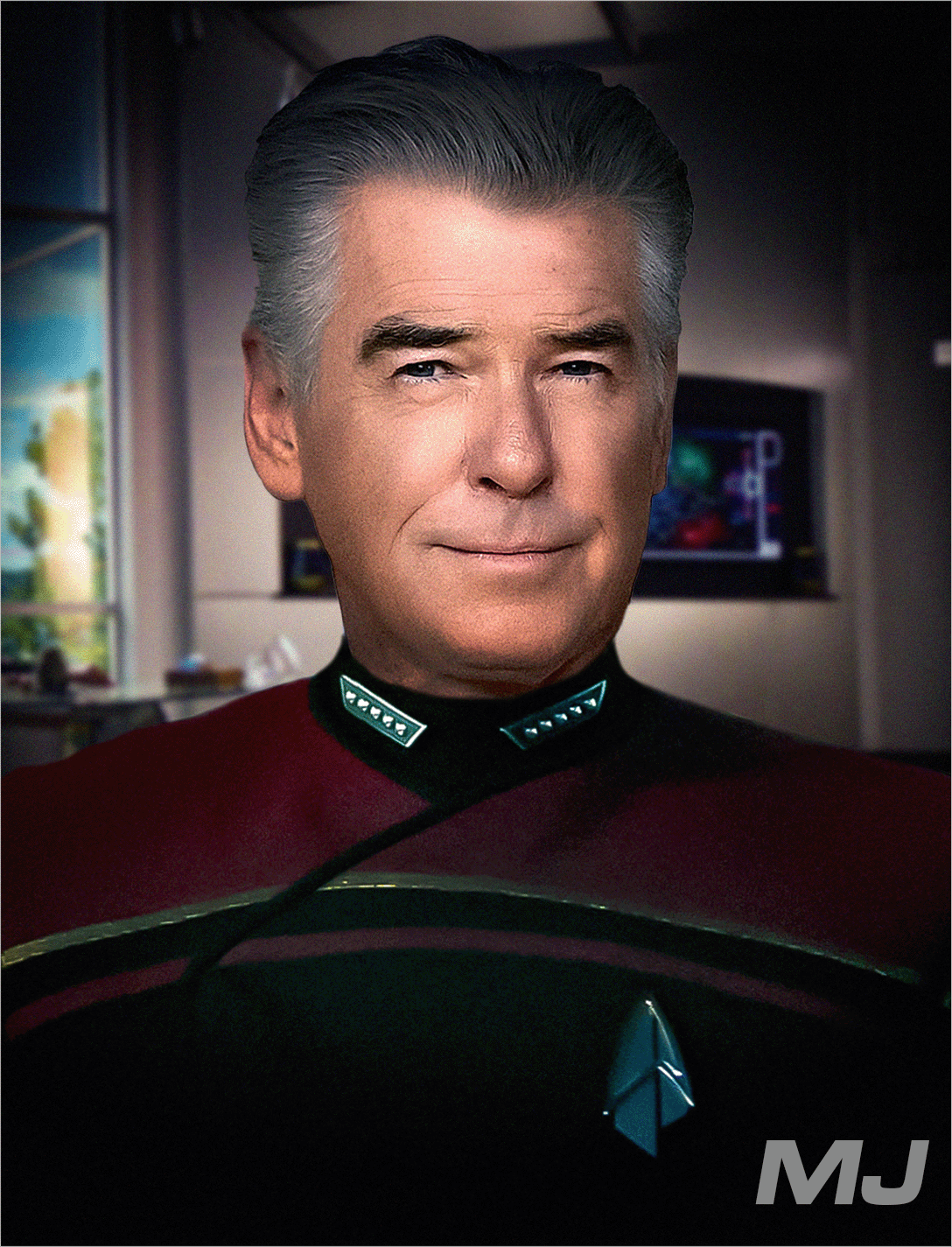The soft light from star charts and holographic displays brightened the sleek surfaces of the Astrometrics Lab. Kulucis stood with his arms crossed, his sharp gaze concentrated on a swirling 3D model of the Virellan system. A spinning schematic of Terros and its atmosphere appeared, enhanced by multiple analyses and projections.
Kulucis’s shoulders were tense, and his jaw was set, reflecting his frustration with the bleak findings of their observations. He had been there for hours, poring over schematics and atmospheric simulations of Terros. The rotating hologram of the moon and its turbulent atmosphere painted a stark picture of the Virellans’ doomed ambitions. Beside it, theoretical models, each more outlandish than the last, flickered and then vanished as Kulucis dismissed one failed idea after another with a brush of his hand.
He ran his fingers through his hair, frustration evident in his defined Kantare features. Progress was slow, and he was eager to discover a solution. An academy professor had once advised him that every problem had a solution. Therefore, a way to assist them must exist—an indirect method that wouldn’t breach Starfleet’s most revered rule. Yet, he couldn’t uncover it.
The doors to the lab swished open, and Lieutenant Anderson stepped in, his usual confident stride tempered by a weight of concern. He was dressed in his standard uniform, but his eyes were wearied.
Kulucis barely acknowledged Anderson, his focus glued to the displays around him. Eventually, once Anderson was almost by his side, he turned to him and offered a subdued nod.
“Welcome back. How’d it go with Commander Saval on Arvan?” Kulucis’ focus remained on the readings before him.
Anderson shrugged, his expression grim. “Not much better than Selvar. Their space program—Vigilant—will experience the same problem. They don’t have the resources or technical expertise to overcome the design flaws. If they launch, they’ll eventually meet the same fate as the Selvarians’ Horizon. How did you and the counsellor get on with the Iskarians?”
Kulucis sighed, rubbing the back of his neck. “Same results. The Iskarians are just as ambitious, but their program is just as underprepared. Their ship won’t survive either. The atmospheric density of Terros, combined with its high gravimetric shear, will tear their ships apart before they can even begin a descent.”
Anderson leaned against the console beside Kulucis, his brow furrowing. “It’s not just about the ships, though. While we were in Arvan, I noticed how tense things were. Their leaders are under immense pressure. Each nation is on edge, ready to stake its claim to Terros. All three of them are racing against time—and against each other.” He paused and looked at the work the commander was focussing on. “The captain mentioned that you’ve been working on another approach since you’ve been back. How’s it going?”
Kulucis exhaled sharply and finally turned to face him. “It’s going… nowhere. I’ve been trying to think of ways to mitigate Terros’ atmospheric dangers—something covert, something indirect. I even considered whether we could use the ship’s deflector array to dissipate parts of the atmosphere and stabilise the gravimetric shears, but…” He gestured toward the hologram in defeat. “The scale of intervention required would expose us immediately. And even if we could, it might cause long-term harm to the moon’s ecosystem or its orbital balance. We can’t interfere. Not without risking contamination.”
Kulucis then gestured to another set of holograms, showing more data. “I’ve even been looking at possible statistical projections on their development, but none of them will be ready in the next two decades. Their engines aren’t powerful enough to maintain stability through the thermosphere, and their hulls can’t withstand the strain of the gravimetric distortions caused by Terros’ unique atmospheric dynamics. It’s like trying to punch through a storm with a paper umbrella. Even their thruster systems lack the precision for proper landing vectors.”
Anderson stared at the display, trying to absorb the scientific explanation. “So, it’s not just one thing—it’s a cascade of failures. The atmosphere itself is the main culprit?”
Kulucis tapped a section of the projection, highlighting the densest atmospheric layers. “The atmosphere is incredibly turbulent, with sudden spikes in ionisation that can short out their navigation systems. And because Terros has slightly higher gravity than Virella, their current engine designs will burn out trying to maintain trajectory. Even if they manage to breach the atmosphere, they’ll lose control before landing.”
Anderson exhaled sharply, leaning forward. “So, basically, it’s a death trap for anyone who tries.”
Kulucis’s expression darkened. “Yes. And the political climate on the surface doesn’t help. If none of them make it, it might prevent a war. But those crews. Well, they’ll pay the price for it.”
Anderson shook his head, his voice tight. “It’s hard to sit here and do nothing. Watching them all walk toward the edge of a cliff.”
Kulucis placed a hand on Anderson’s shoulder, his tone serious. “I know. It goes against everything we stand for—to protect life. But we can’t interfere. Unless they had warp technology, and again, the projections suggest that won’t happen for at least another century.”
The two men stood silently for a moment, the hum of the ship’s systems filling the quiet.
Finally, Anderson broke the tension. “You know what I need, Commander? A distraction. Andron and I were about to start a new holonovel—an action-thriller set on an old Constitution-class starship after the Federation-Klingon War in twenty-two-fifty-eight. You in?”
Kulucis raised an eyebrow, his scepticism evident. “A holonovel? Anderson, I don’t think running around pretending to be some twenty-third-century officer is going to solve anything. We have real problems here.”
Anderson crossed his arms and smirked. “I get it. But you know what? You were the one who got me to punch a bag in the gym the other night when I was stewing. Now, it’s my turn to help you blow off some steam. Besides, when was the last time you did something for fun?”
Kulucis frowned, considering his words.
Anderson leaned in, his tone coaxing. “Come on, Commander. We’re no use to anyone if we’re burnt out. A couple of hours in the holodeck won’t change the situation on Terros, but it might clear your head. And I promise you, no red shirts for you.”
Kulucis let out a soft chuckle despite himself. “You’re not going to let this go, are you?”
Anderson grinned. “Not a chance.”
Kulucis sighed, rubbing his temples. “Fine. But if I end up as some ensign swabbing the decks or cleaning the boots of an admiral, I’m holding you personally responsible.”
Anderson laughed, clapping him on the shoulder. “Deal. Let’s go.”
Sitting alone in the softly illuminated briefing room, Captain Krabreii was like a small island in a vast ocean. There was nothing around her and nothing to bother her for now. Her keen gaze was focused on the holographic feeds hovering before her. The room was filled with the simultaneous voices of newscasters reporting from Virella’s surface. Every screen showcased a unique broadcast, with each nation declaring its imminent triumph.
One screen showed a bustling plaza in Selvar’s capital, where the charismatic mission leader addressed a roaring crowd. “Our engineers and scientists have forged a path to Terros that only Selvar can achieve! The Horizon will be the pinnacle of our nation’s strength and innovation!”
Another displayed the Arvanian president, standing at the edge of the Vigilant launch site, her voice steady and commanding. “We are mere days away from claiming our rightful place among the stars. Terros will belong to us, as it was always destined to.”
A third feed showed the Iskari prime minister, flanked by military officials, promising their citizens that what stood before them would usher in a new era for Iskari. “We will not be denied. Our claim to Terros is absolute!”
Krabreii scowled while drinking lukewarm tea. Her dark eyes searched the feeds for signs of compromise or an opportunity for these nations to ease their intense rivalry. Yet, all she found was pride, ambition, and the beginnings of possible conflict.
The briefing room door opened quietly with a gentle swish. Saval stepped inside, his Vulcan demeanour as calm and composed as ever. His hands were clasped neatly behind his back as he approached her.
“Welcome back, Commander,” Krabreii greeted, acknowledging his presence with a subtle nod. She gestured with a PADD in her hand. “I’ve read Brad’s initial report. Not exactly the kind of news that brightens a day.”
Saval inclined his head. “The report is accurate, Captain. All three nations’ spacecraft are critically flawed. They lack the materials and expertise to construct vessels capable of withstanding the atmospheric conditions of Terros.”
Krabreii let out a weary sigh, her eyes returning to the feeds. “Kulucis is in astrometrics, trying to find alternatives. I sent Anderson to join him, either to help or at least cheer him up. Both of them have been beating themselves up about this situation. I can’t quite blame them.”
Saval raised an eyebrow. “And you, Captain? Do you require similar encouragement?”
Krabreii gave a dry laugh and shook her head. “I’m the captain. I don’t get that luxury. Besides,” she added, waving a hand toward the screens, “I’ve been too busy watching these broadcasts. I thought maybe—just maybe—I’d find some indication that this mess won’t end in disaster. So far, no luck.”
Saval studied the feeds, his sharp features betraying no emotion. “The leaders of these nations appear deeply entrenched in their positions. Their rhetoric suggests an unwillingness to compromise.”
“Exactly,” she muttered. “I was hoping for some glimmer of common sense, something that might prevent a global war if—when—all three ships fail. But all I see is a powder keg waiting to blow.”
Saval moved to the replicator. “Perhaps some fresh tea would improve your perspective. Vulcan spice tea, Captain?”
Krabreii’s lips twisted into a faint smile. “You know me too well, Saval.”
Moments later, he returned with two steaming mugs, one of which he placed in front of her. Taking a seat beside her, he sipped his tea with characteristic precision.
“Thanks,” she murmured, cradling the mug in her hands. She stared into the amber liquid for a long moment before speaking again. “Saval, I think we need to move on.”
“Leave the system?” he asked, his eyebrow arching slightly.
She nodded with a slight sigh. “There’s nothing more we can do here without violating the Prime Directive. Watching those ships fail and their crews die. Well, there’s no point in us staying and witnessing it. Even if Kulucis finds an alternative, I find it difficult not to see that whatever happens, these people will end up fighting one another. And it’s not fair to the crew to put them through all of that. It’s our first pre-warp civilisation to discover out here in the Delta Quadrant, and all we will see is a civilisation eventually destroy itself. The Prime Directive may stop us from interfering, but it doesn’t force us to watch them obliterate themselves.”
Saval set his mug down, folding his hands neatly in his lap. “Remaining here would indeed serve no purpose. The emotional toll on the crew is already evident. Perhaps it is time to redirect our efforts.”
“I’ll speak with Commodore McCallister and let him know we will rendezvous with the Odyssey and the rest of the squadron ahead of our schedule,” Krabreii said.
“There may be nebulae or a black hole that requires investigation before we reach the Odyssey. Neither would involve pre-warp civilisations or moral dilemmas,” Saval suggested.
Krabreii chuckled softly. “You really do know how to say the right thing to keep me going, don’t you?”
“It is my duty to assist, Captain,” he replied simply.
She leaned back in her chair, the faintest hint of relief softening her expression. “All right, then. Let’s give the crew twenty-four more hours to wrap up observations. After that, we’re leaving the system. And, Saval?”
“Yes, Captain?”
“Thanks—for the tea and for keeping my head on straight.”
The Vulcan inclined his head. “Always, Captain.”

 Bravo Fleet
Bravo Fleet










